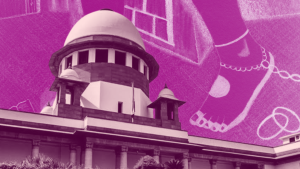[Readmelater]
Why The Uniform Civil Code Has Become A Polarising Idea
The debate around the UCC goes back to colonial times. Here is an explainer of how the idea has evolved over time

Image Design: Ankita Dhar Karmakar
Support BehanBox
We believe everyone deserves equal access to accurate news. Support from our readers enables us to keep our journalism open and free for everyone, all over the world.




